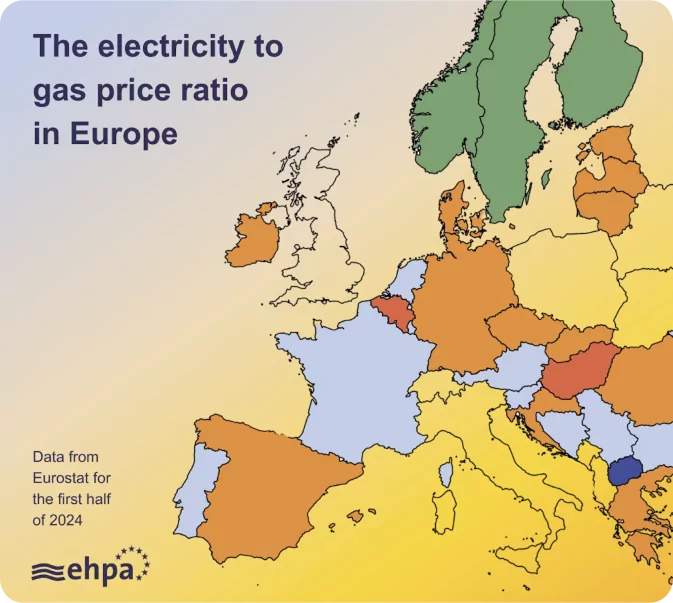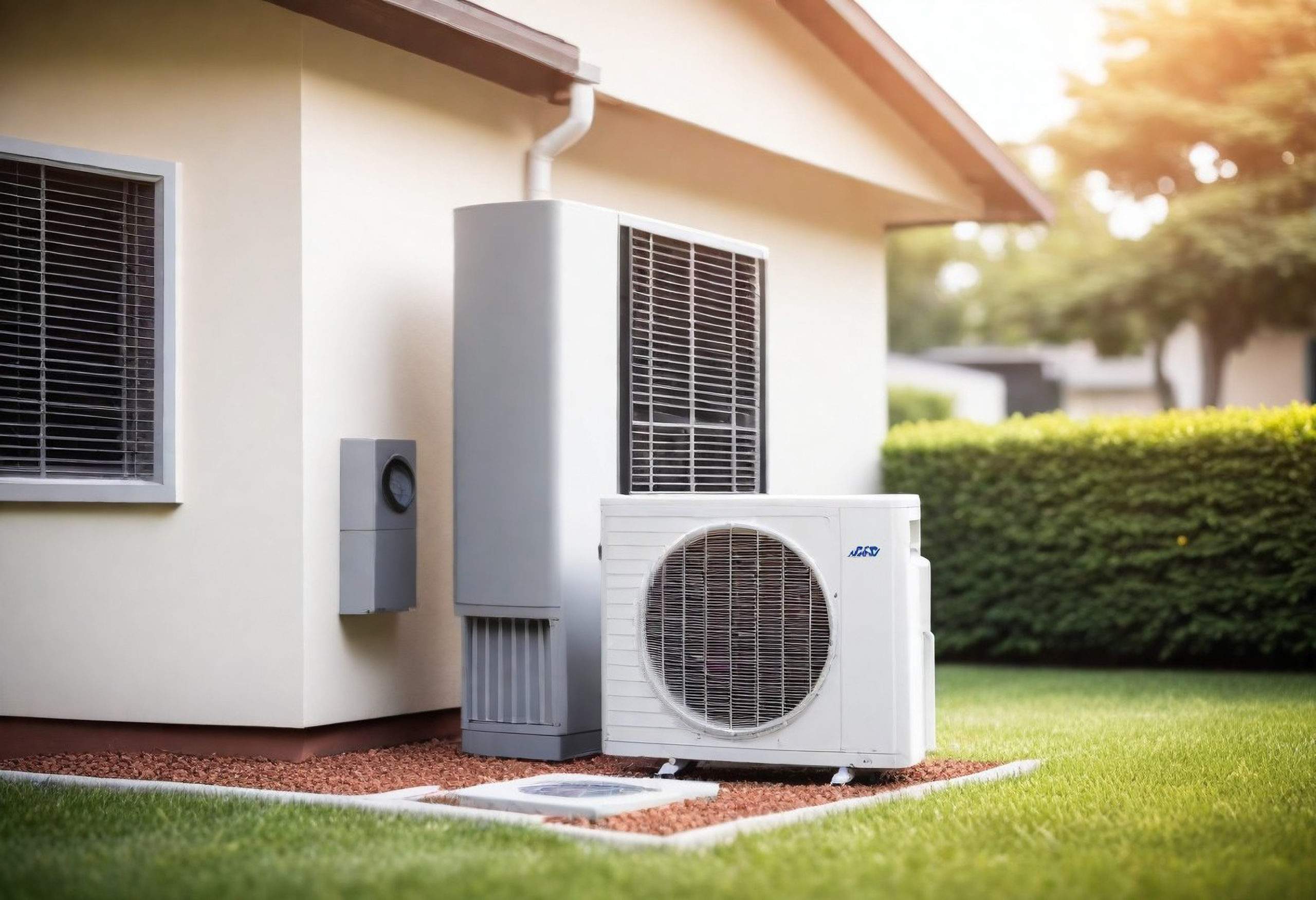Heat pumps use three to five times less energy than gas boilers.
Despite this, high upfront costs and electricity prices can put consumers off.
Ensuring electricity is no more than twice the price of gas, flexible electricity tariffs and targeted support for low-income households can make clean, cost-effective heating accessible to everyone.
People need to see a rapid return on investment on their heat pump.
To achieve this, electricity should be no more than double the price of gas.
Electricity costs can be reduced by shifting taxes and levies away from electricity bills and phasing out fossil fuel subsidies. Putting a price on carbon pollution and offering consumers a lower or variable electricity tariff if they switch to flexible, renewable heat pumps are also key.
Financial tools, government support, private sector financing, and alternative delivery and business concepts to reduce the cost are essential to tap into the energy savings heat pumps provide.
Low-income households should be shielded from high energy prices. They should have access to cleaner and, ultimately, cheaper to run heating and cooling solutions like heat pumps.
High energy prices in the EU are making it harder for households and businesses to switch from gas to heat pumps as shown in this series of maps.
The European Commission addressed this issue by publishing an Action Plan for Affordable Energy alongside the Clean Industrial Deal in February 2025.
The plan focuses on reducing system costs, including grid charges, taxes, and levies, while also tackling energy poverty to ensure that vulnerable households aren’t left behind in the transition to cleaner, more affordable energy.
EHPA calls for an EU-level approach to taxation which reduces the overall electricity costs for households, businesses and industries. At both national and European levels, the balance of electricity costs, levies, charges and grid investment should all be designed to increase electrification and make electricity more competitive than gas.
EHPA also supports a 0% VAT on heat pumps and encourages Member States to take it up as an option.


Affordable housing is not only a social priority — it is also a cornerstone of the EU’s climate and energy transition.
Ensuring that new and renovated affordable homes are energy-efficient and equipped with clean technologies will improve living conditions, reduce energy bills, and accelerate decarbonisation across the continent.
The EU’s Affordable Housing Plan, published in December 2025, contains some great steps for the switch to clean heat. These include considering ‘affordability’ also in terms of energy costs, which positions energy efficient heat pumps as part of the solution, stating that affordability should not come at the expense of sustainability, and saying energy bills & taxes must be addressed.
Heat pumps are particularly well-suited for affordable housing, providing year-round comfort while consuming only a fraction of the energy used by fossil fuel systems.
Read our position.
As part of the Clean Industrial Deal, the European Commission is set to publish guidance for EU governments on social leasing for heat pumps and other clean technologies.
Social leasing is a publicly supported scheme that enables low-income households to access clean technologies through affordable monthly rental payments, without the need for upfront ownership.
Applied to heat pumps, social leasing could build on subscription-based models covering equipment, installation, and maintenance and, in some cases, even energy use. Unlike commercial subscriptions, social leasing would be government-backed and targeted specifically at vulnerable households.
EHPA believes that social leasing for heat pumps, complementing existing instruments such as grants, reduced VAT rates, and green loans, is a promising solution to overcome high upfront costs and ensure equitable access to clean heating for all.
Read our position.

The EU Emissions Trading System (ETS) is the world’s first and one of the largest carbon markets. It requires companies to pay for their emissions, which should encourage them to emit less.
From 2028 – postponed by one year from the originally proposed 2027 – this system will also cover carbon emissions from buildings, road transport, and other sectors (ETS2). All allowances will be auctioned, with part of the revenue funding a Social Climate Fund (SCF) to support vulnerable households and micro-enterprises, ensuring they are not left behind in the green transition.
EHPA believes that if implemented properly and with the right social support, it will help more households to switch to heat pumps.
Read our latest press release and download our infographic.
The aim of the EU Taxonomy is to ‘guide’ investors towards sustainable economic sectors. EHPA supports heat pumps being recognised as sustainable under the EU Taxonomy in order to channel investments to them.
Have questions on a specific file or position? Click here to find the right policy colleague to assist you. For general inquiries, email policy@ehpa.org.
EHPA’s policy work on affordability is also supported by the EU-funded projects:
Upfront costs are one of the biggest barriers to clean heating in Europe’s commercial and public rented buildi...
Artificial Intelligence is transforming not only our daily lives but also the way we plan, design, and use the...
EU governments’ decision yesterday to delay the carbon price on buildings and road transport (ETS2) for a year...
After two tough years in terms of heat pump sales, there was a glimpse of stabilising numbers in the...
EHPA continued to be active in many relevant coalitions and campaigns: some long-term, and others coming toget...
People need to be able to afford to buy their heat pump in the first place – which is why EHPA updated its rep...